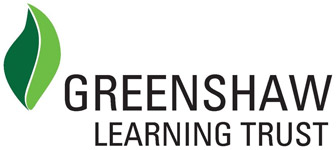Maths
.jpg)
At Tweeddale, we have a strong focus on maths; it is a core subject and it is taught daily. Our lessons follow the national curriculum and ensure that children are taught skills which they then use in an array of contexts to ensure understanding and retention. Problem-solving has a prominent focus in the curriculum and, at Tweeddale, we ensure it is taught both discreetly, usually once a week, and in context during maths lessons. These approaches to teaching maths ensure that the children are being exposed to the idea of mastery within maths. Times tables knowledge is also something that is key to helping a child develop. Children practise times tables each week, focusing on games and activities to help them gain a better recall of specific tables. There is an expectation that times tables are learned at home each week until known by heart.
Intent
At Tweeddale we aim to deliver a curriculum that develops the skills children need to become resilient, independent, confident and fluent mathematicians. We want to create independent and reflective learners whose skills not only support them in maths but also help across the whole curriculum and in later life. In addition to this, our aims align with that of the national curriculum, which are to develop learners who: are fluent in the fundamentals of maths; are able to reason mathematically and are able to apply their maths to a range of problem-solving scenarios.
Implementation
The maths curriculum is led and overseen by an experienced member of staff who will lead a regular programme of monitoring, evaluation and review, along with the celebration of good practice. The curriculum incorporates the statutory requirements of the National Curriculum 2014. The Curriculum map for maths is regularly looked at and updated where needed to ensure coverage, repetition and progression to develop mathematical knowledge. There are 3 different stages to the planning process which are used to ensure coverage and progression in the teaching and learning of mathematics.
Long term plans
Teachers use White Rose and the school’s curriculum map for the outline of teaching for the year.
Medium term plans
Using the long term plan and White Rose’ planning, teachers have access to medium term planning for each half term. Children are taught units of work that are broken down into objectives that are skills based and reasoning is taught within lessons for all children to access. Using both, the objectives are grouped per term to allow for the sequencing of prior learning and the fluent development of new skills; these are repeated within the year and year on year.
Short term plans
These take the form of weekly planning sheets or slides for lessons in KS1 and KS2. These should be available electronically for all adults in the class to look at prior to the lesson and a discussion with the class LSA should also happen. During lessons, Maths is assessed using the whole school feedback and marking policy and lessons are adapted daily to meet and personalise learning needs.
The teaching of mathematics varies across the school with the key aim to ensure children are making progress while gaining skills and knowledge.
Foundation Stage
In Foundation Stage, mathematics is taught each day through investigative play, whole class sessions, small group and individual work. Activities include counting, sorting, matching, seeking patterns, making connections, recognising relationships and working with numbers, shapes, space and measures. Mathematical understanding is developed through stories, songs, games and imaginative play, so that children enjoy using and experimenting with numbers.
Key Stage 1 and 2
In Key Stages 1 and 2, mathematics is taught through a dedicated daily mathematics lesson. Lessons will typically (but not exclusively) contain three main parts: 1. Oral and mental calculations (often including practising number facts) 2. The main teaching activity (which usually includes an opportunity for children to practise their learning) 3. A plenary to conclude the lesson and bring the learning forward. In both Key Stage 1 and Key Stage 2, lessons last approximately 60 minutes. One of the 5 lessons is used to focus on arithmetic and times tables. Reasoning and problem-solving are embedded within each lesson and not be seen as something separate or taught in isolation. Children are tested weekly on their times tables following a progressive program. Weekly scores/times are recorded to track progress. These are ongoing and move up with the children on a yearly basis.
Impact
Through high quality, effective teaching and exposure to a range of problem solving techniques, we aim for the children at Tweeddale to have the skills and knowledge needed to continue their learning journey once they leave us. Through this we aim to ensure that all children:
- become fluent in the fundamentals of mathematics, including through varied and frequesnt practice with increasingly complex problems over time, so that pupils develop conceptual understanding and the ability to recall and apply knowledge rapidly and accurately.
- can reason mathematically by following a line of enquiry, conjecturing about relationships and generalisations, and developing an argument, justification or proof using mathematical language
- can solve problems by applying their mathematics to a variety of routine and non-routine problems with increasing sophistication, including breaking down problems into a series of simpler steps and persevering in seeking solutions
Photo by alex-chambers-CyMd0vOYFfU-unsplash









